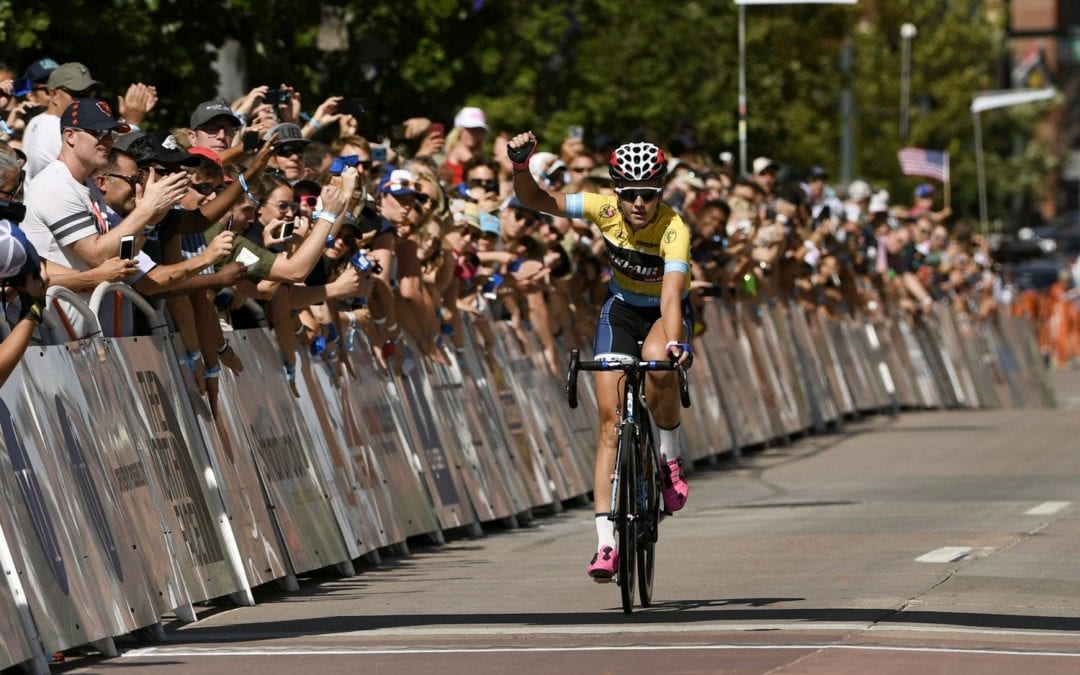As America’s major sports leagues explore having games without fans in the stands, officials of the Colorado Classic have decided to try a bike race without spectators as well.
That’s the plan, anyway. Race officials said on Tuesday that they plan to move forward with staging the women-only race via a “made-for-TV model,” pending approval by state, county and local health departments. The race is scheduled Aug. 27-30, with stages planned for Snowmass Village, Avon, Boulder and Denver.
“An event cancellation or postponement was explored, but as a last resort,” said Lucy Diaz, chief executive of RPM Events Group, according to a news release. “And while it would be the easiest thing to do, we feel a strong commitment and promise to the athletes, the communities and our partners.”
The race will feature free, start-to-finish coverage distributed by dozens of television and online outlets worldwide, a concept it introduced last year. Expos and festivals at start/finish areas will be eliminated, along with race hospitality tents and services in accordance with social distancing. But that doesn’t mean no one will be out there watching.
“The race will encompass hundreds of miles of roads throughout Colorado, so it is unrealistic to think that we can prevent people from watching the race from the roadside,” said Anne-Marije Rook, a spokeswoman for the event, in response to an email seeking more information on race plans. “It is also unknown at this time what the social distancing protocols will be on August 27-30. But for now, we are actively trying to dissuade people from gathering by removing any reasons for them to gather.”
Race routes and start/finish locations are being revised to diminish their impact given coronavirus concerns. Red Rocks Park is being considered as a potential venue for the final stage because of its stunning scenery and arduous course profile, along with it being a more controllable venue than the streets of downtown Denver.
“The infrastructure around this year’s race will be scaled back, but our top priority is to create an opportunity for world-class competition in an environment that best supports and focuses on the health and well being of riders and staff,” Diaz said. “We are working closely with state and city organizations, health authorities and the sports governing bodies to create protocols and processes that ensure the health and safety for everyone.”
This content was originally published here.





